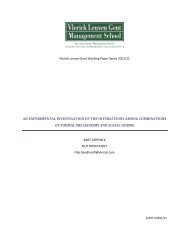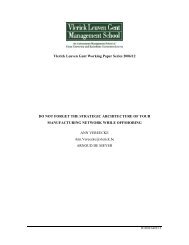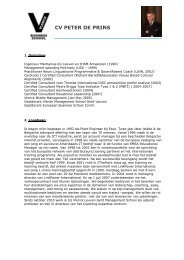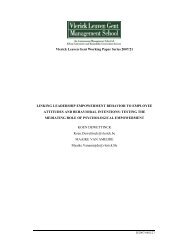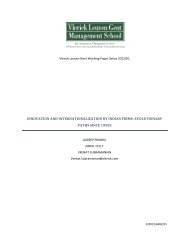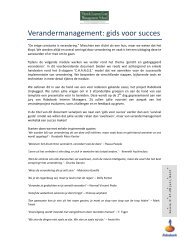Vlerick Leuven Gent Working Paper Series 2007/03 ... - Vlerick Public
Vlerick Leuven Gent Working Paper Series 2007/03 ... - Vlerick Public
Vlerick Leuven Gent Working Paper Series 2007/03 ... - Vlerick Public
You also want an ePaper? Increase the reach of your titles
YUMPU automatically turns print PDFs into web optimized ePapers that Google loves.
ABSTRACT<br />
Mainstream research on boards of directors has been focusing on a direct relationship between<br />
board characteristics and firm performance, but up till now the results are inconclusive.<br />
Different reasons are put forward to explain this inconsistency, but it can be argued that<br />
‘traditional’ board research has been neglecting potential intervening variables. In this paper<br />
we present a process-oriented model for board effectiveness by relying on the corporate<br />
governance literature and the literature on group effectiveness. We follow the input-processoutput<br />
approach to extract the significant variables from literature and integrate them into a<br />
research framework for studying board effectiveness. In particular, we identify three<br />
intervening variables (cohesiveness, debate and conflict norms) which we believe mediate the<br />
effects of board characteristics on board performance. The rationale for including these<br />
‘process’ variables is the belief that the interactions and relationships among board members<br />
determine to a large extent the collective outcomes of the board of directors. In this respect,<br />
the model goes beyond the traditional structural attributes of boards of directors to include<br />
behavioural or attitudinal measures of board effectiveness. It also highlights the need for a<br />
multi-disciplinary approach in empirical research on boards of directors.<br />
3



